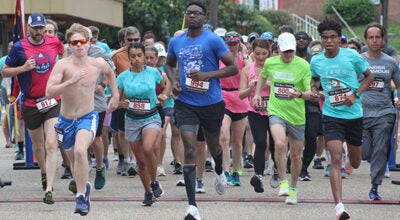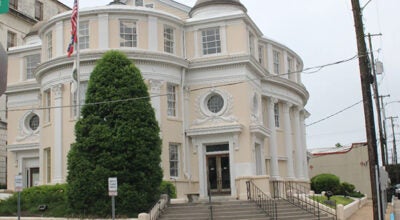An unlikely assassin and a last laugh
Published 10:50 am Friday, April 11, 2014
Imagine if Alec Baldwin’s younger brother, Stephen, had shot and killed George W. Bush because he disagreed with the outcome in the 2000 presidential election or perhaps that Sean Penn’s brother, Chris, had assassinated Ronald Reagan over the Iran-Contra scandal.
Today these scenarios seem absolutely preposterous, but that’s precisely the situation the country was facing 149 years ago this coming Monday when the younger brother of one of the county’s most famous actors changed the course of American history with a single bullet.
John Wilkes Booth was just 26 years old when he shot President Abraham Lincoln in the back of the head with a .44-caliber Derringer pistol while the president was attending a production of the farcical play “Our American Cousin,” at Ford’s Theater in Washington D.C.
Americans often remember Booth — and unfortunately his family — solely for this act.
What is often forgotten is that his elder brother Edwin was perhaps the finest Shakespearean actor of his generation and his portrayal of Hamlet has been called the finest staged anywhere in the 19th century
John Wilkes Booth was an actor in his own right and tackled a bit of Shakespeare, most notably the lead in “Richard III.”
Like Stephen Baldwin and Chris Penn, however, he never achieved the acting fame of his elder brother. The irony is that nearly a century and a half later, John Wilkes Booth is a household name. Ask nearly anyone on the street who Edwin Booth is, and the question is met with a resounding “Who?”
While Edwin Booth used his knowledge of acting to figuratively knock ‘em dead, John Wilkes Booth used his knowledge of the craft with far more deadly intention.
John Wilkes Booth was familiar with “Our American Cousin” and knew when the English comedy about the fictional Asa Trenchard who could be best described as rude, crude and socially unacceptable would get its biggest laugh.
He hoped the laughter would muffle the sound of his pistol.
Halfway though the second scene of the third act, Trenchard is accused by a woman of not knowing the rules of society.
He replies, “Don’t know the manners of good society, eh? Well, I guess I know enough to turn you inside out, old gal—you sockdologizing old man-trap.”
The joke is tame, perhaps even unfunny by today’s standards, but in 1865, it got the result the assassin predicted.
As Booth pulled the trigger, Lincoln was laughing.
•
Josh Edwards is a reporter and can be reached by email at josh.edwards@vicksburgpost.com or by phone at 601-636-4545.





